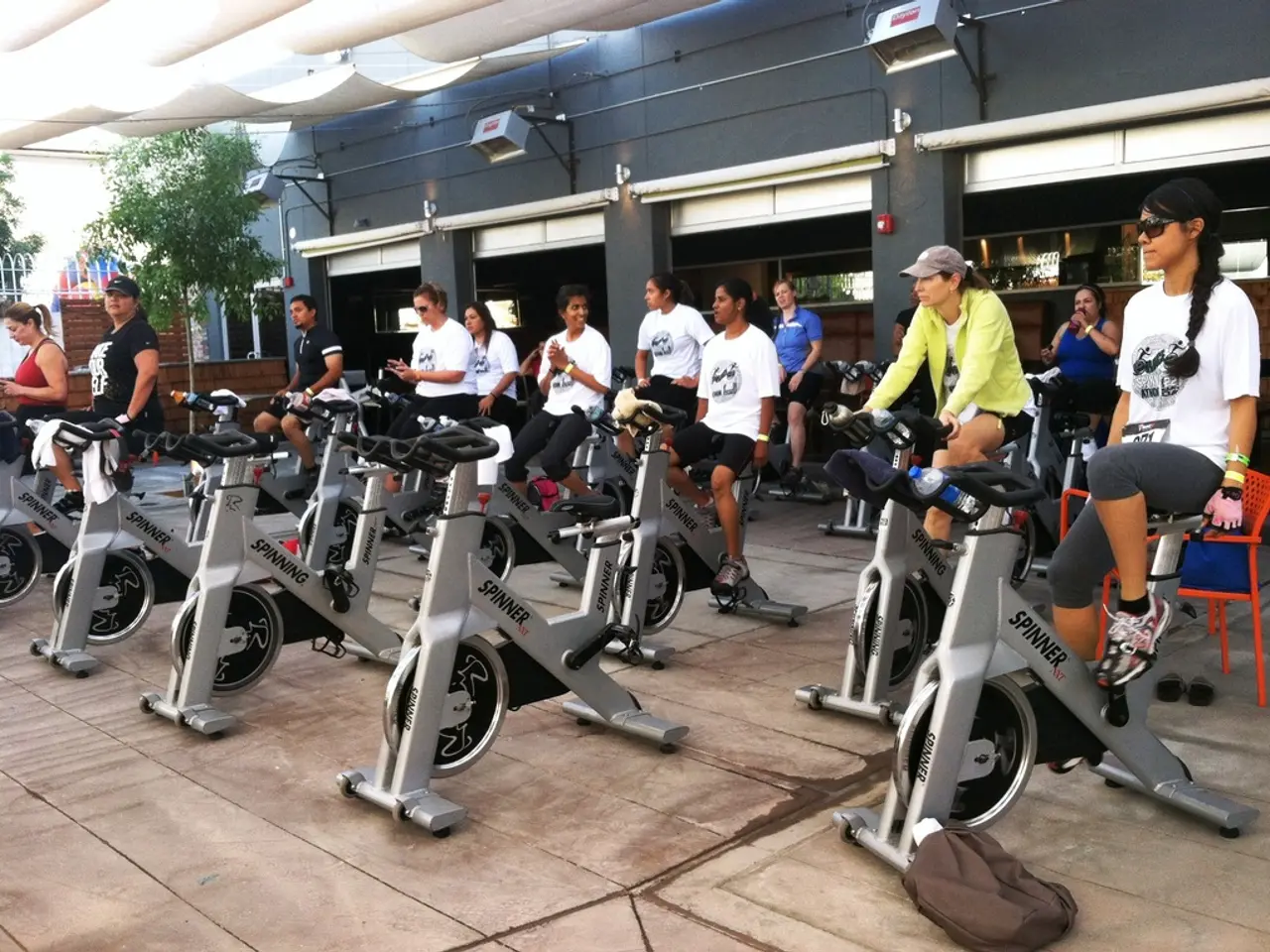Impact of Sleep on Fitness Aspirations: The Role of Rest in Shaping Your Physical Pursuits
Sleep plays a crucial role in the lives of athletes, serving as a vital component in achieving optimal fitness recovery and mental clarity.
During deep sleep cycles, known as Non-Rapid Eye Movement (NREM) sleep, the body releases growth hormone, allowing muscles to repair and grow, a critical process for strength training and endurance sports. This muscle repair is essential for enhancing stamina and reducing fatigue during exercise.
On the other hand, Rapid Eye Movement (REM) sleep, characterised by increased brain activity, eye movement, and dreaming, is essential for cognitive and emotional health. REM sleep is also associated with memory consolidation, increasing learning and retention of movement skills. Moreover, during the REM phase of sleep, the body undergoes energy restoration and rejuvenation at the cellular level, preparing the body for the next day's workout.
Adequate sleep also regulates hormones responsible for appetite and metabolism, such as leptin and ghrelin. Proper hormone balance contributes indirectly to weight control, making it easier to maintain a healthy diet and achieve weight reduction goals.
However, lack of sleep can disrupt these hormones, leading to overeating, excess weight gain, and difficulty maintaining a healthy diet. Insufficient sleep can also cause impaired glucose metabolism, leading to insulin resistance and type 2 diabetes, conditions that can counteract fitness progress.
Adequate sleep is also crucial for mood regulation. Lack of REM sleep may result in irritability, mood fluctuations, or lack of motivation, which can hinder an athlete's performance and motivation.
To ensure quality sleep, it's recommended to maintain a regular sleep-wake schedule, minimise noise, and use relaxation practices to alleviate stress before bedtime. Additionally, restricting caffeine and screen use in the evening can support improved sleep quality.
Studies have shown that increasing sleep quantity and quality enhances athletic performance such as speed, accuracy, and reaction times. Adequate sleep also reduces muscle fatigue and soreness, enabling better workouts and recovery, which is critical for muscle healing and strength maintenance.
In sum, athletes should prioritise 7–10 hours of quality sleep to optimise fitness outcomes, support weight management, and maximise muscle repair and strength. A supportive mattress and airy bedding can enhance comfort and minimise sleep interruptions. Establishing a regular sleep routine can further enhance metabolism and contribute to the successful attainment of fitness goals.
References: 1. Sleep Foundation (2025) [Link] 2. Axes PT (2025) [Link] 3. PubMed (2025) [Link] 4. Springer (2025) [Link]
- Athletes' recovery and mental clarity are significantly impacted by sleep, especially deep NREM sleep cycles where the body releases growth hormone to repair and strengthen muscles, essential for strength training and endurance sports.
- REM sleep, characterized by increased brain activity, eye movement, and dreaming, is crucial for cognitive and emotional health, as well as memory consolidation, enhancing learning and retention of movement skills.
- To facilitate muscle repair and reduce fatigue during exercise, it's essential to ensure adequate sleep for enhancing stamina and recovery.
- Sleep also regulates hormones responsible for appetite and metabolism, with proper hormone balance contributing indirectly to weight control and weight reduction goals.
- Conversely, sleep deprivation can lead to overeating, weight gain, and difficulty maintaining a healthy diet, while also causing impaired glucose metabolism, insulin resistance, and potentially type 2 diabetes.
- Lack of sleep can also negatively impact an athlete's mood, resulting in irritability, mood fluctuations, and lack of motivation, hindering performance.
- To improve sleep quality, it's recommended to maintain a regular sleep-wake schedule, minimize noise, use relaxation practices, and avoid caffeine and screen use in the evening.
- Increasing sleep quantity and quality can lead to improved athletic performance, such as increased speed, accuracy, and reaction times, as well as reduced muscle fatigue and soreness.
- A supportive mattress and airy bedding can enhance comfort and minimize sleep interruptions, optimizing fitness outcomes.
- A regular sleep routine, supported by research from Sleep Foundation, Axes PT, PubMed, and Springer, contributes to metabolism enhancement, supporting the successful attainment of fitness goals in the broader context of health and wellness.




